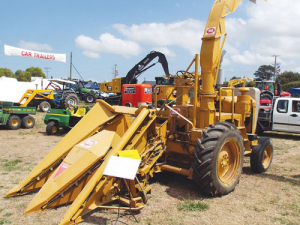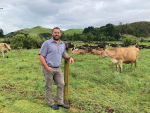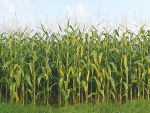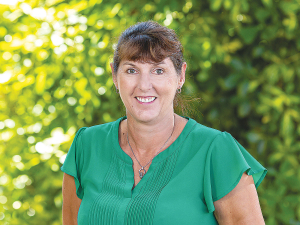Giant self-propelled forage harvesters are a common sight in paddocks, but wind the clock 55 years to 1962, when the Gehl 188 Chop King hit the country, and there must have been eyes standing out on stalks.
Spotted at the recent Northland field days at Dargaville, this example started its working days in Hawkes Bay before moving to Duncan Bros at Hautapu, Cambridge.
In 1997 it moved to Kaitaia, where owner ‘Gonk’ Bryan nicknamed it the ‘Gonkarator’ before handing it over to Wayne Bratten in 2006.
In 2010 it was donated to the Kaipara Vintage Machinery Club in a sorry state after a fire, and became a five-year restoration project led by club member Clyde McKenzie.
Today the machine is fully restored to working condition after many hours of work, particularly on the electrical and hydraulic systems. It comes complete with a grass pick-up, two-row maize header and a direct-cut head.
Said to be capable of harvesting about 2ha of grass or 0.8ha of maize per hour, the machine is a far cry from today’s goliaths, but would have seemed a beast compared to the more common direct-cut trailed machines.
One of only 100 examples built between 1962 and 1966, and thought to be one of only four surviving in the world, the fully restored machine will be on display at the Kaipara Machinery Club ‘Crank Up’ at Dargaville on April 1.


















